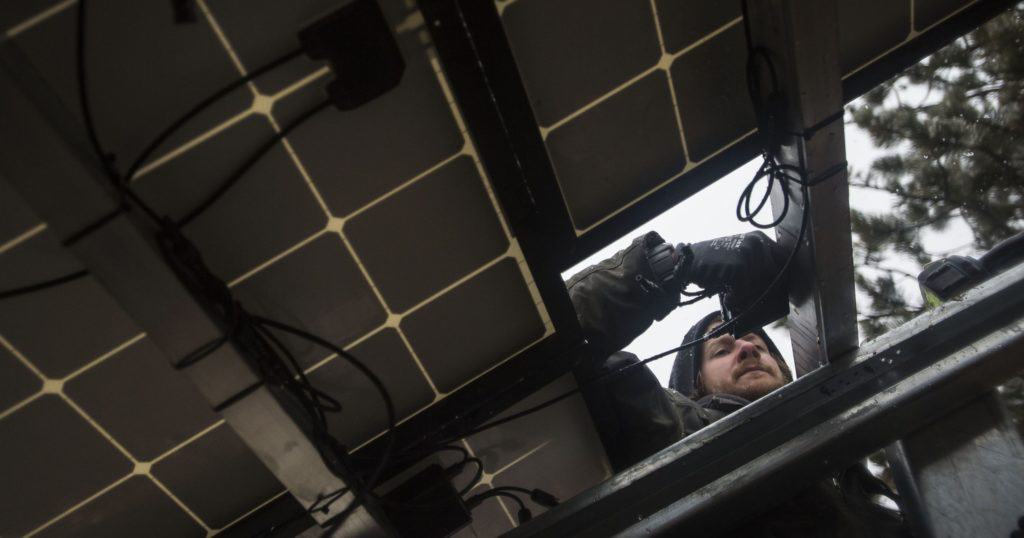
The newly formed Fort Collins Solar Co-op is calling all residents and business owners who want to save money on solar panels.
The group will be Colorado’s first solar co-op, a system that makes solar installations cheaper by choosing a single installer for everyone in the co-op who chooses to get solar panels. Co-ops get discounted rates on solar installations because the process allows installers to save money on finding, qualifying and educating solar customers.
Fort Collins Solar Co-op is free to join, and members don’t have to buy solar panels. The group will hold an informational meeting at 6:30 p.m. Thursday at Colorado State University’s Powerhouse Energy Campus, 430 N. College Ave.
When the co-op has about 25 members, its members will pick an installer through an open bidding process. The chosen installer will create personalized plans for each member to consider. The group, convened by Solar United Neighbors of Colorado with help from the city and local organizations, could eventually have up to 100 members or more.
It’s not yet clear how much co-op members will save on solar installations because this is Colorado’s first solar co-op and solar markets vary throughout the country, said Ben Delman, spokesman for Solar United Neighbors of Colorado.
Solar panels can lower your electricity bill because you get credits for any unused electricity they produce. The city’s new time-of-day electricity rates have triggered an increase in electricity bills for some people with solar panels, though — Fort Collins Utilities estimates the average solar customer will pay about $5.25 more each month if they don’t change their habits during peak-use hours. The new pricing system gives solar customers more money back for solar electricity produced during peak hours (2 to 7 p.m. from May to September and 5 to 9 p.m. from October to April) and less money back for solar electricity produced during off-peak hours.
Delman said Solar United Neighbors will be “looking closely” at how time-of-day rates could affect new solar customers in Fort Collins. Co-op members will be able to take advantage of Fort Collins’ menu of solar incentives, including the city’s solar rebate program.
The average cost of a residential solar installation without battery storage was about $21,800 in 2018, according to Fort Collins Utilities. The cost has declined from nearly $47,000 in 2008.
Locally installed solar panels provide about 1.3 percent of electricity in Fort Collins. The city hopes to increase that portion to 2 percent by 2020 and reach all-renewable electricity by 2030. For Platte River Power Authority, the power provider for Fort Collins, Loveland, Estes Park and Longmont, solar power makes up 2 percent of electricity delivered to customers. That margin will increase when Platte River installs 20 megawatts of solar capacity at Rawhide Energy Station in Wellington.
Solar United Neighbors of Colorado received an Innovate Fort Collins grant, which funds community sustainability projects, to help establish a co-op in Fort Collins.
Two other grant winners focused on renewable electricity, She’s in Power 3.0 and Taco ‘Bout Solar, are partners in the project. Taco ‘Bout Solar draws people to solar power education events with — you guessed it — free tacos. She’s in Power 3.0 is a mentorship program with a goal of helping women and girls enter and stay in the local clean energy workforce.
